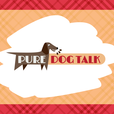
Summary: Canine Cognitive Dysfunction is More Than Old Age<br> Dr. Marty Greer, DVM is back with this month’s Veterinary Voice topic, Canine Cognitive Dysfunction.<br> <br> Canine Cognitive Dysfunction/Cognitive Dysfunction Syndrome: (CDS) is a neurobehavioral disorder affecting geriatric dogs and cats that is characterized by an age-related decline in cognitive abilities sufficient to affect functioning, with behavior changes that are not attributable to other medical conditions.<br> Signs of Dog Dementia<br> To look out for canine cognitive dysfunction, remember to check your dog's "DISH":<br> <br> * Disorientation<br> <br> * Paces<br> * Wanders aimlessly<br> * Becomes stuck on the wrong side of the door or behind furniture<br> * Staring at walls or into space<br> * Seems lost in the yard or forgets the purpose of going outside<br> * Forgets where the water and food bowls and doors are<br> * Fails to recognize familiar people or dogs<br> * Reduced responsiveness to name or verbal commands<br> * Abnormal response – increased or decreased – to familiar objects<br> * Difficulty learning new tasks<br> * Difficulty performing previously learned task<br> * Loss of interest in food<br> * Repetitive behaviors<br> <br> <br> <br> <br> * Interaction with Family Members<br> <br> * Seeks less attention (petting, belly rubs, play)<br> * Less enthusiastic to greet people or other pets in the home<br> * No longer greets family upon arriving home<br> * Fails to respond to verbal cues<br> * Increased irritability and/or aggression with family and pets<br> * Changes in exploratory behavior<br> * Intolerant of being left alone<br> <br> <br> <br> <br> * Sleep and Activity<br> <br> * Sleeps more hours per day, especially during the daytime<br> * Sleeps less throughout the night<br> * Reduced daily activity<br> * Lack of interest in his surroundings<br> * Restlessness, pacing, wandering or circling at sunset (sundowning)<br> * Vocalization at night (barking or howling)<br> <br> <br> <br> <br> * House Training<br> <br> * Urinates or defecates indoors<br> * Urinates or defecates indoors soon after having been outside<br> * Failure to indicate need to go outside<br> * Accidents occur in front of his owners<br> * Elimination at uncommon outdoor locations such as on concrete<br> <br> <br> <br> Cause<br> The neuroanatomic pathology in dogs and cats shares some characteristics with human Alzheimer’s disease, specifically β-amyloid accumulation, tau phosphorylation and neuronal loss in the frontal cortex, cerebellum, and hippocampus.<br> Managing Canine Cognitive Dysfunction<br> <br> * Purina Neurocare/Bright Minds<br> * Hills B/D<br> * Royal canin<br> * Addition of antioxidants (Vitamin C and E) for cellular-level health and medium-chain triglycerides for cognitive improvement. L-Carnitine for muscle mass.<br> * Phosphatidylserine, Apoaequorin and S-Adenosyl-l-Methionine (SAME)<br> * Anipryl/selegeline - Is a selective monoamine oxidase -B inhibitor, which could enhance catecholamine neuron activity and increases dopamine levels in dogs.<br> * DHA<br> * Avoid unnecessary vaccines<br> * Skip pharmaceuticals when possible<br> * Reduce stress including changes in their routine and environment<br> * Potty pads, confinement, outside more often<br> * Pet-proof the house<br> * Social interaction and mental engagement/ environmental enrichment<br> * Keep the day/night cycles regular with sunlight<br> * Walking/exercise/stroller if needed<br> * Situational anti-anxiety drugs – trazodone and gabapentin<br> <br> <a href="https://www.royalcanin.com/us/dogs/products/aging-and-senior?gclsrc=aw."></a>
